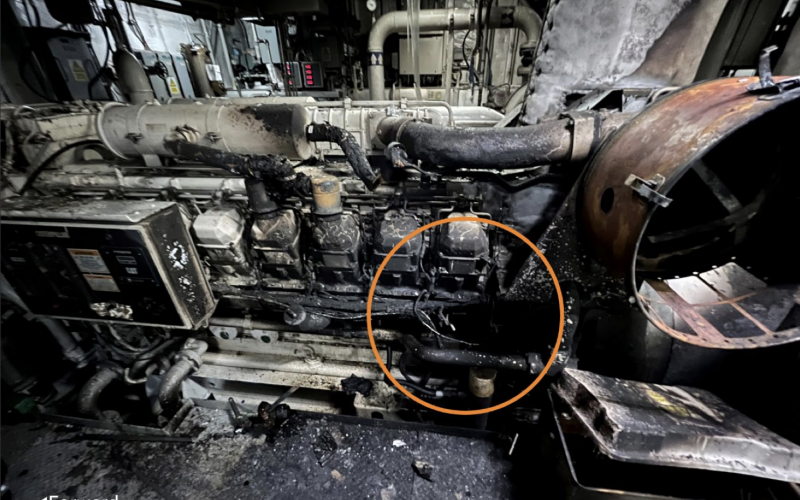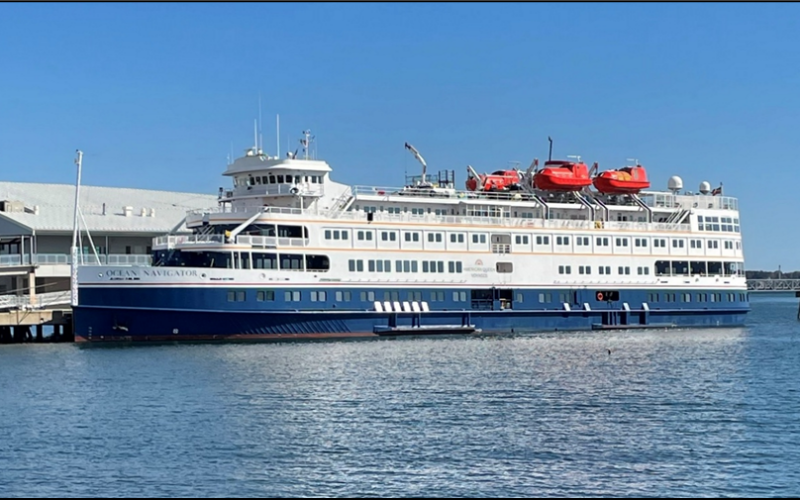Debris in an engine’s lube oil system led to a diesel engine failure and an engine room fire aboard a passenger vessel docked in Portland, Maine, the National Transportation Safety Board said Tuesday.
The Ocean Navigator was moored at the Ocean Gateway Terminal when the no. 2 auxiliary diesel generator engine, one of four Caterpillar 3516B diesel engines rated at 2,000 hp, suffered a catastrophic mechanical failure that seriously injured one motorman on the crew and resulted in an engine-room fire.
Other crewmembers secured ventilation to the engine room, and the fire self-extinguished. None of the 128 passengers onboard were injured, and no pollution was reported. Damage to the vessel was estimated at $2.4 million.
After the fire, third-party technicians disassembled all components from the no. 2 auxiliary engine and found the crankshaft, several main bearings, connecting rod bearings and the no. 14 fuel injector were damaged. An additional inspection found abnormal wear on the connecting rod bearings and main bearings, which showed signs of cavitation erosion bearing damage, as well as damage from debris, which had been introduced at some point into the lube oil system.

Additionally, since the last change of the lube oil filter elements in May 2023, the engine had run over 3,000 hours. The engine manufacturer’s recommendation is to replace filter elements at every oil change or after the filter elements had been used for 1,000 hours.
“Manufacturers provide maintenance recommendations and intervals (schedules) to ensure equipment operates safely, optimally, and reliably throughout its service life,” the report said. “By regularly reviewing equipment manufacturer manuals and guidance, operators can ensure conformance with recommended maintenance plans and mitigate the risk of equipment malfunction or failure.”
The NTSB also found "the crew’s quick action to secure engine room ventilation and engine fuel sources prevented the fire from spreading."
“Engine rooms contain multiple fuel sources as well as mechanical ventilation, making the spaces especially vulnerable to rapidly spreading fires,” the NTSB report said. “After an engine room fire ignites, it is imperative to remove the sources of available fuel and ventilation to the fire to prevent it from spreading. Vessel crews should familiarize themselves and train frequently on machinery, fuel oil, lube oil, and ventilation shutoff systems to quickly act to contain and suppress engine room fires before they can spread to other spaces.”




